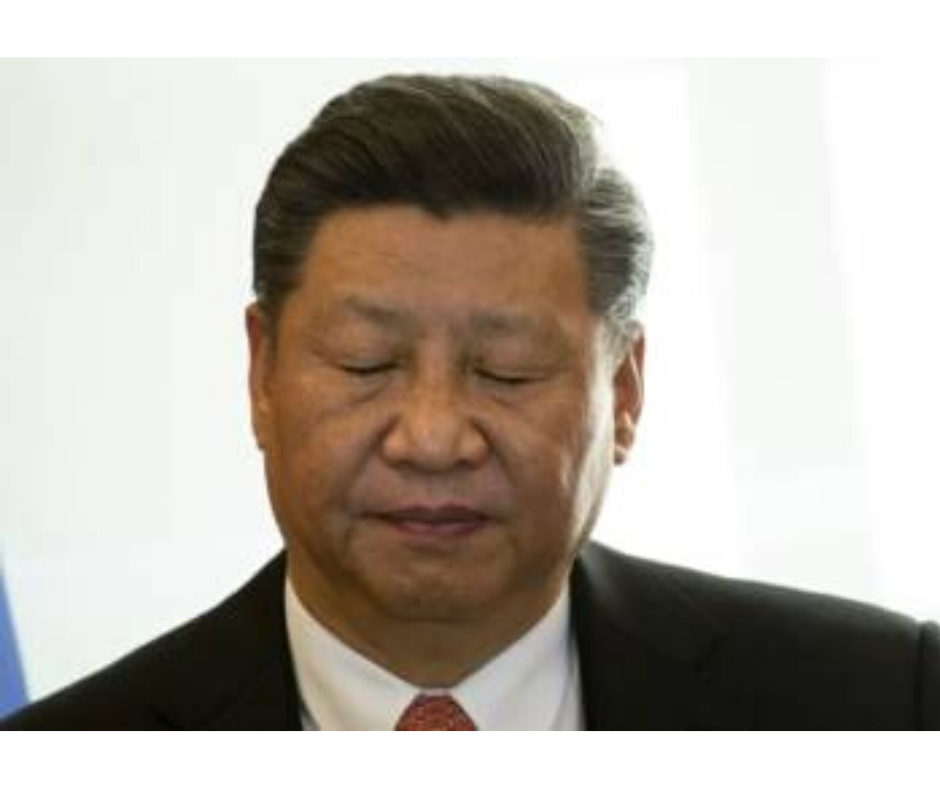Xi Jinping came to power in late 2012, and since then, he has ruled the country with an iron fist. Xi Jinping is the General Secretary of the CCP, Chairman of the Central Military Commission and the President of the People’s Republic of China along with nine other titles.
Over the last few years, he consolidated powers by purging the dissenters and placing loyalists to all important posts. As soon as Xi Jinping assumed the reigns of the CCP, he went on a deadly purge that saw over 1.5 million government officials jailed or mysteriously disappeared under the garb of corruption. The purge also took down 200,000 CCP leaders, including powerful Politburo members and Xi’s adversaries Bo Xilai and Zhou Yongkang.
Everything was going well for Xi Jinping until the country was struck with Coronavirus.
The equations suddenly changed for the leader who rose from the son of an exiled leader to the most powerful individual in China since Mao Zedong was being hailed throughout the world.
In the last few months, Xi Jinping’s leadership has been questioned by the powerful members of the Chinese Communist Party. The “old guards” of CCP, whom Jinping sidelined in the last few years, are now questioning the handling of Coronavirus by the Jinping administration as well as his wolf warrior diplomacy.
Previously, Ren Zhiqiang, a former head of state-run real estate conglomerate Huayuan Group and a party member who also served in PLA, criticized the handling of Coronavirus by Xi administration. The wolf warrior diplomacy has also been questioned by the think tanks associated with the party as well as the old guards of CCP.
Now, facepalm moment in the Galwan valley gives the Communist Party members who are critical of Xi Jinping administration another chance to question the country’s diplomacy and foreign policy.
The Chinese Communist Party censored the incident in Chinese media and the clash was either not reported at all or got space on the sidelines of middle pages of newspapers. A complete blackout of the incident by state-controlled Chinese media shows that Xi Jinping administration does not want the incident to come out in open.
China also censored India’s views on the border skirmishes. The Chinese firewall blocked access to PM Modi’s website and removed his speeches.
This round of censorship seems to be orchestrated by the Chinese President Xi Jinping who is seemingly terrified at the prospect of losing hold over the Communist Party of China (CCP), if the truth about Galwan valley, where Chinese got a bloody nose by Bihar regiment, comes out.
Cai Xia, a retired Chinese central party school professor, says “Everyone knows in their hearts what’s going on. The key is whether our high-ranking officials have the political courage to be accountable to the party and to the people.”
“If we don’t get rid of this person, we will witness the political system in free fall” she added. Like Cai, many others have started speaking up and these people would only be encouraged after China’s humiliating defeat in the Galwan valley.
All this while, the Chinese State media has been trying to craft the myth of a strong country led by a decisive leader.
Cracks have appeared in Jinping’s hold over the Communist Party of China (CCP) given the catastrophic handling of the COVID-19 Pandemic.
Xu Zhiyong, a Chinese civil rights activist and a former lecturer at the Beijing University of Post and Telecommunications, wrote an open letter to the Chinese President and truly encapsulated Xi Jinping’s dilemmas, or if we put it more precisely- weaknesses.
Zhiyong says, “You’re no politician. You’re far inferior to Deng Xiaoping. You have proved that you lack the most rudimentary competences. Yet you remain perversely unaware of your limitations; you actually think you are more formidable than Deng ever was and you have the hubris to presume that you are on par with Mao Zedong.”
In terms of popularity in China, Xi Jinping doesn’t match the biggest of Chinese leaders- Deng Xiaoping, the man behind China’s economic reforms, and Mao Zedong, the founding father of the People’s Republic of China.
Neither does Xi Jinping fare among the most popular world leaders today, which is why Zhiyong says, “You (Jinping) are not Putin, or Modi, and you’re certainly not Trump. You flirt with Cultural Revolution fanaticism, but you are no true-believing Leftist; you lurch towards bellicose nationalism, but you’re no hawk, either. You’re a big nothing.”
Xi Jinping’s tenure has seen China return to regressive ways- the narrative started shifting from the ‘Made in China’ brand and economic growth to cult-building. It was clear that Xi Jinping wanted to take China back to the days of Mao Zedong when in 2017 the CCP Central Committee decided to make Xi Jinping’s policies dubbed “Xi Jinping Thought”, a part of the Party’s Constitution. A year later, he carried changes to the constitution, ending the Presidential two-term limits to become a ‘leader for life’, like Mao Zedong.
And the people who do not like the radical changes which are taking China back to dark days, are now speaking up amid the successive failures of Xi Jinping in diplomacy, foreign policy, and domestic policy. The humiliating defeat in the Galwan clash would only accelerate the movement against Xi Jinping in the Chinese Communist Party.
